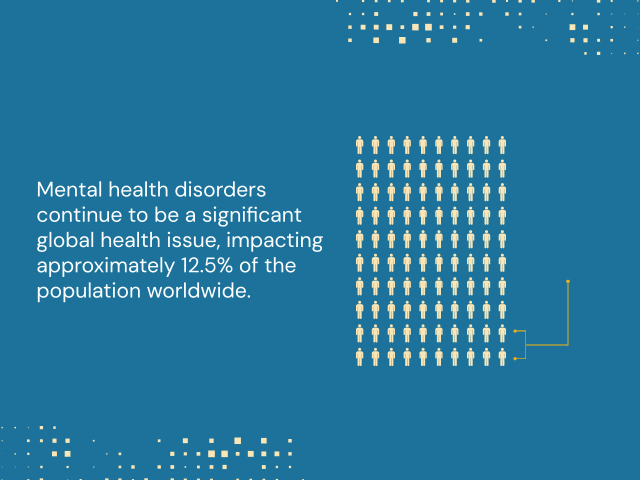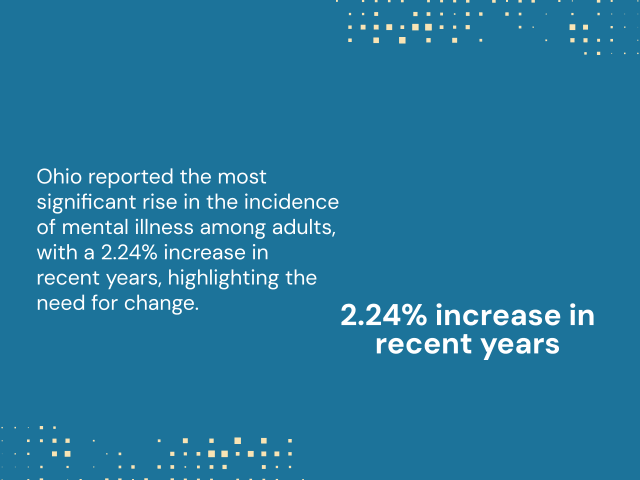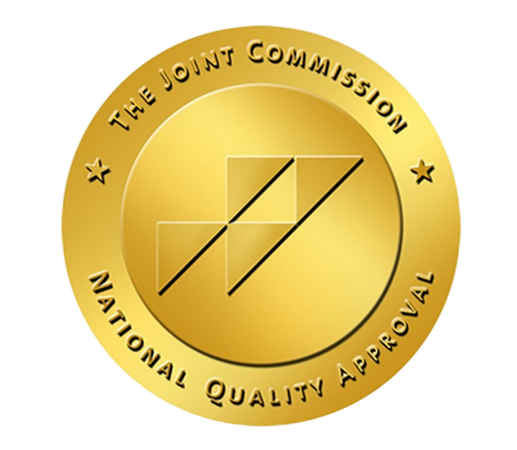Mental Health Awareness:
The Ultimate Guide
Table of Contents
Addressing Mental Health Needs with AM Behavioral Health
Life can be challenging, but it’s okay to ask for help when you need it. At AM Behavioral Health, we’re here to listen, understand, and support our clients—every step of the way.
AM Behavioral Health is a leading mental health care center in Dayton, Ohio. We specialize in various treatment programs to address a range of mental health and substance use challenges. Our services are inclusive and designed to meet the needs of diverse communities in Ohio and beyond.

The Growing Need for Mental Health Awareness
Breaking the Silence on Stigma Surrounding Mental Health
We Are Your Guide to Mental Health Awareness

Understanding Mental Health Awareness
Early Intervention
- Changes in behavior
- Mood swings
- Lack of focus
- Withdrawal from social activities
Access to Care
- Financial limitations
- Anxiety surrounding mental health
- Limited availability of mental health services
- Stigma about seeking help from family, friends, or society
Common Mental Health Conditions
Depression
Depression is a mood disorder characterized by:
- Persistent sadness
- Loss of interest or pleasure
- Low energy
- Feelings of worthlessness or guilt
Physical Symptoms of Depression
Anxiety Disorders
Anxiety disorders are one of the most prevalent mental health issues, affecting 31.1% of US adults in their lifetime.5
- Generalized Anxiety Disorder (GAD): Persistent worry about various aspects of life.
- Social Anxiety Disorder (SAD): Overwhelming worry in social situations.
- Panic Disorder: Sudden, intense fear episodes without real danger.
Specific Phobias: Extreme fear of specific objects/situations.
What is an Anxiety Disorder?
Bipolar Disorder
- Bipolar I: At least one manic episode, which may be preceded or followed by hypomanic (less severe mania) or major depressive episodes.
- Bipolar II: At least one major depressive episode and at least one hypomanic episode, but without the full-blown manic episodes typical of bipolar I.
Symptoms of Bipolar Disorder
- Feelings of euphoria or extreme irritability
- Very high energy and activity levels
- Decreased need for sleep without feeling tired
- Racing thoughts and rapid speech
- Impulsiveness and poor judgment
- Exaggerated beliefs about one’s abilities
- Feelings of hopelessness or pessimism
- Fatigue or decreased energy
- Thoughts of death or suicide
Schizophrenia
- Hallucinations (seeing or hearing things that are not present)
- Delusions (firmly held beliefs with no basis in reality)
- Disorganized thinking and speech
- Reduced ability to express emotions
Eating Disorders
- Anorexia Nervosa: An intense fear of gaining weight and a distorted body image, leading to severe food restriction.
- Bulimia Nervosa: Episodes of binge eating followed by purging to prevent weight gain.
- Binge Eating Disorder: Regular episodes of excessive eating without the compensatory purging of bulimia.
Post-Traumatic Stress Disorder
- Intrusive thoughts, such as flashbacks and nightmares
- Avoidance of reminders of the trauma
- Negative changes in thoughts and mood
- Alterations in physical and emotional reactions, such as hypervigilance and exaggerated startle response
A Closer Look at PTSD
Impact of Mental Health Awareness
Individual Well-Being Flourishes
Mental health awareness empowers individuals to manage stress effectively, navigate challenges productively, and demonstrate resilience in the face of difficulties. It equips them with a set of skills to maintain a healthy and positive mind.
Building a Stronger Community

AM Behavioral Health's Approach to Mental Health Awareness
Our Clinical Philosophy
- Personalized Care: We put our clients first. Every decision and treatment plan is tailored to meet their unique needs and goals.
- Strong Connections: We create a support network that includes not just our clients but also our dedicated team members and providers.
- Forward-Thinking Treatments: We’re always looking for new and better ways to support each individual’s journey to wellness.
- A Comprehensive Approach: We look at the physical health, emotional balance, and connections with others to craft a wellness plan.
Types of Therapy We Provide at AM Behavioral Health
- Cognitive-Behavioral Therapy (CBT): This equips individuals with practical techniques to identify and challenge negative thought patterns and behaviors, empowering them to cultivate healthier coping mechanisms and reshape their perspectives.
- Dialectical Behavior Therapy (DBT): This combines elements of CBT with mindfulness practices, emphasizing acceptance and change to help individuals regulate emotions, navigate interpersonal relationships, and manage distress more effectively.
- Medication-Assisted Treatment (MAT): MAT integrates pharmacological interventions with counseling and behavioral therapies to support individuals in overcoming substance use disorders, reducing cravings, and preventing relapse while addressing co-occurring mental health conditions.
- Psychoeducational Groups: These offer a supportive environment for individuals to learn about mental health conditions, develop coping skills, and gain insight into their experiences through shared experiences and expert guidance.
- Trauma-Focused Therapies: This type of therapy provides a safe space for processing traumatic experiences, reducing PTSD symptoms, teaching coping skills, and fostering healthier relationships.
- Recreational Therapy: This includes enjoyable activities promoting physical, emotional, and social well-being. This helps enhance self-esteem, provide a sense of accomplishment, and encourage socialization within a support group.

Encouraging Open Dialogues on Mental Health and Well-Being
The Power of Speaking Up
Policy and Change
- Increased funding for education programs
- Expanded access to affordable mental health care
- Development of effective support systems
Acceptance and Empathy
Measuring Progress
Play Your Role in Mental Health Advocacy
Become an Advocate
- Sharing your story
- Educating your friends, family, and colleagues
- Contacting your local representatives and urge them to prioritize mental health funding and policies
- Challenging stigma about mental health in everyday conversations
- Showing compassion and understanding toward those struggling with mental health
Support Our Mission
Explore the Paths to Wellness
- Sub-acute detox
- Inpatient treatment
- Partial hospitalization program (PHP)
- Intensive outpatient program (IOP)
- Outpatient treatment
- Aftercare
Diverse Treatment Opportunities
- Medication-assisted treatment (MAT)
- Dialectical behavior therapy (DBT)
- Cognitive-behavioral therapy (CBT)
- Psychoeducation
- Motivational interviewing (MI)
- PTSD therapy
- Recreational therapy
- Trauma-focused therapies
- Dual diagnosis treatment

AM Behavioral Health's Commitment to Individual and Community Wellness
Continued Engagement and Support
As the journey toward mental health awareness continues, AM Behavioral Health encourages ongoing engagement and support from all corners. Our programs help individuals feel seen, supported, and heard throughout their recovery.
Connect and Collaborate with AM Behavioral Health
For inquiries, support, and more, call AM Behavioral Health at 937-236-1800 or reach out online. We’re here to assist you in any way we can.
Our compassionate and supportive team is here to ensure that you get the help you need for full and comprehensive recovery from any symptoms you may have.
Resources
- https://www.who.int/news-room/fact-sheets/detail/mental-disorders
- https://mhanational.org/sites/default/files/2022%20State%20of%20Mental%20Health%20in%20America.pdf
- https://www.nimh.nih.gov/health/statistics/major-depression.shtml
- https://www.ncbi.nlm.nih.gov/pubmed/29195763
- https://www.nimh.nih.gov/health/statistics/any-anxiety-disorder
- https://www.dbsalliance.org/education/bipolar-disorder/bipolar-disorder-statistics/
- https://pubmed.ncbi.nlm.nih.gov/15753237/
- https://www.ptsd.va.gov/understand/common/common_adults.asp
- https://www.ncbi.nlm.nih.gov/pmc/articles/PMC5288082/





